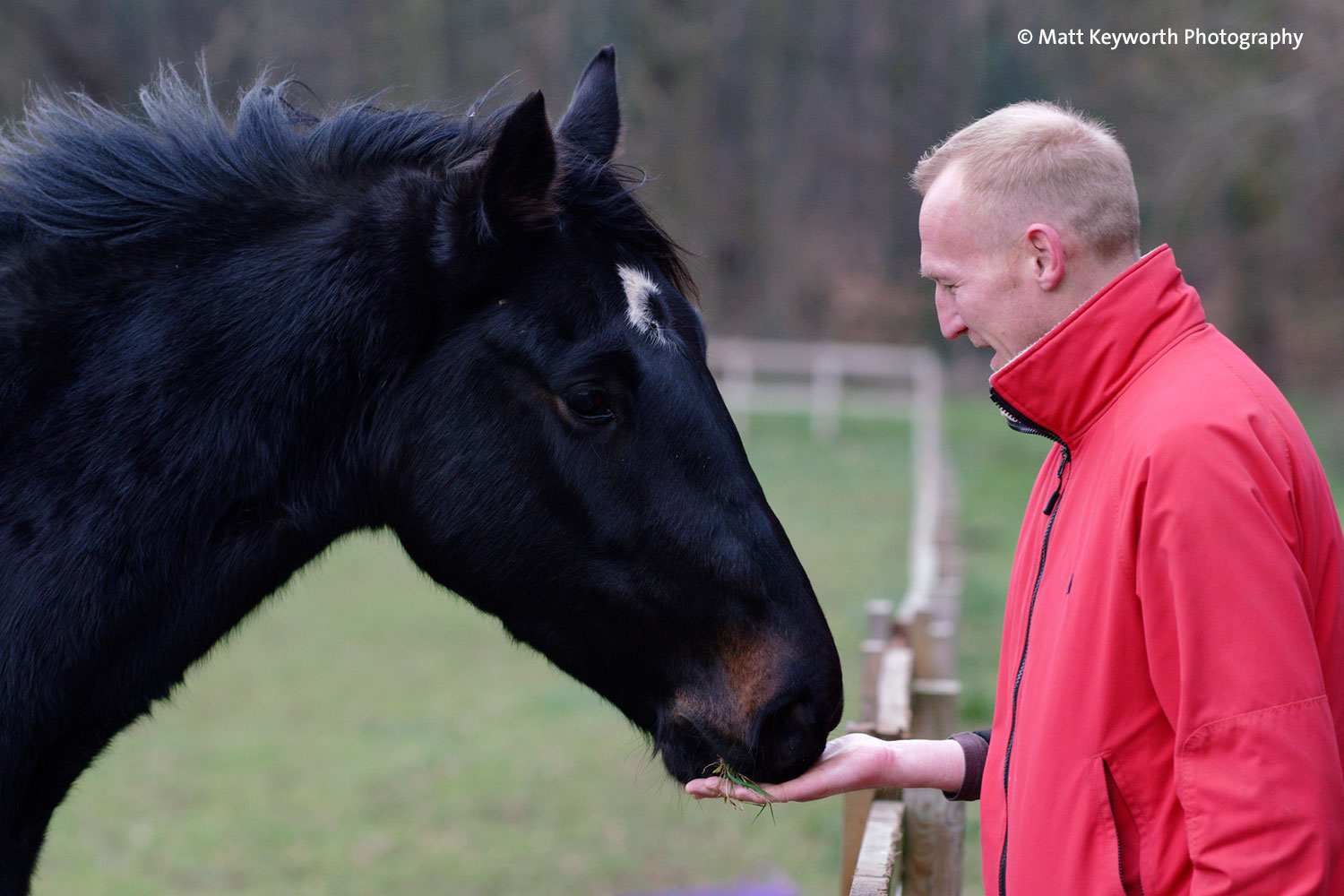Autumn worm control: which worms should you test for?
Field Officer Chris Shaw explains which worms you should be testing for in the autumn – and why it’s so important to test before treating.
Posted on 15/10/2022

Did you know that resistance is increasing to all the de-worming drugs we currently have available? That means we need to be really careful to maintain their efficiency as much as possible, especially given that no new drugs are on the horizon. The best way to do that is to routinely test your horse for worms and only treat if necessary.
There are so many benefits to testing rather than routinely de-worming with a blanket approach: it’s much better for your horse and the environment. Did you know, for instance, that the chemicals in de-worming treatments can leach out of your horse’s poo into the pasture if you turn them out in wet weather after being treated, and that this can really badly impact on the dung beetle population? In the long run testing routinely is likely to save you money too, which is never a bad thing!
In the autumn you should be testing for redworm, using a faecal egg count (FEC) kit, as well as tapeworm, for which you use a saliva test. This year we’re hearing reports that tapeworm counts are extremely high. It seems that the weather we experienced this summer led to low redworm counts (which is a good thing) but also created perfect conditions for the red mites which spread tapeworm to thrive.
Tapeworm burdens are less likely in healthy adult horses – once over the age of four, they generally develop more of a natural immunity. This year, however, tapeworm counts do seem to be much higher in horses of all ages – and a high tapeworm burden can ultimately block your horse’s guts and lead to colic.
It’s important not to underestimate the consequences of failing to control worms in our horses properly – and that’s why it’s so vital that we act now to prevent resistance to de-worming treatments becoming more widespread. If the de-worming drugs we have become less and less effective, we may no longer be able to de-worm our horses properly – and I see the consequences of awful worm burdens all too often. The ones I find especially sad are youngsters who arrive at one of our centres after being rescued but already have so much damage from a huge worm burden that they ultimately can’t be saved, despite our team’s very best efforts and all our vets’ expertise. That’s not a fate any owner wants to witness their horse going through – so we need to work together, and fast, to spread the word about the importance of preserving the efficiency of our current de-worming treatments.
A new working group has recently launched to highlight just how important it is that we take a strategic approach to worm control in our horses – it’s called CANTER, which stands for ‘Controlling ANTiparasitic resistance in Equines Responsibly’. The group is made up of RAMAs, industry bodies, vets, policy makers, pharmaceutical manufacturers, and charities, and I’m delighted to be representing World Horse Welfare. The aim is that we develop a strategy and industry-wide approach to tackling this very real problem. Keep your eyes peeled for progress updates and more seasonal advice from us but, for now, will you help us spread the word by sharing this blog and our social media content about responsible worming?
Further information
- Not sure where to buy testing kits? You can purchase all kinds from Westgate Labs, who will also help you decode the results and offer advice on which treatment to use if necessary.
- You can find out more about the different types of worms, as well as the importance of good pasture management, on our advice page here.
- Need to de-worm your horse and know they’re not keen on it? Check out our top tips here.
Topics
Related News

Welfare Wednesday Webinars return to our screens.
'Managing arthritic changes in ridden horses.' kicks off our 2023/24 webinar series

Free to access advice site paves the way for better equine welfare.
New resource hub for all horse owners and care-givers contains the latest and most up-to-date advice, supported by industry experts
Recommended Blog Posts

Reflections on our relationship with the Balmoral Estate
Centre Manager Eileen reflects on Belwade Farm’s connection with Balmoral Estate – the Scottish residence of our late monarch Her Majesty Queen Elizabeth II – over the years.

Why do horses come into our care? Is that the only successful outcome of a case?
Chief Field Officer Claire Gordon explains how horses and ponies can come into our care for all kinds of reasons and from all kinds of situations.

Our London Marathon runners 2025
We catch up with the six runners taking on this epic event for our charity to find out how their training is going.
Enjoy reading stories like this?
Join over 55,000 other horse lovers and sign up for our email newsletter

Join over 55,000 other horse lovers and sign up for our email newsletter
Sign me up now